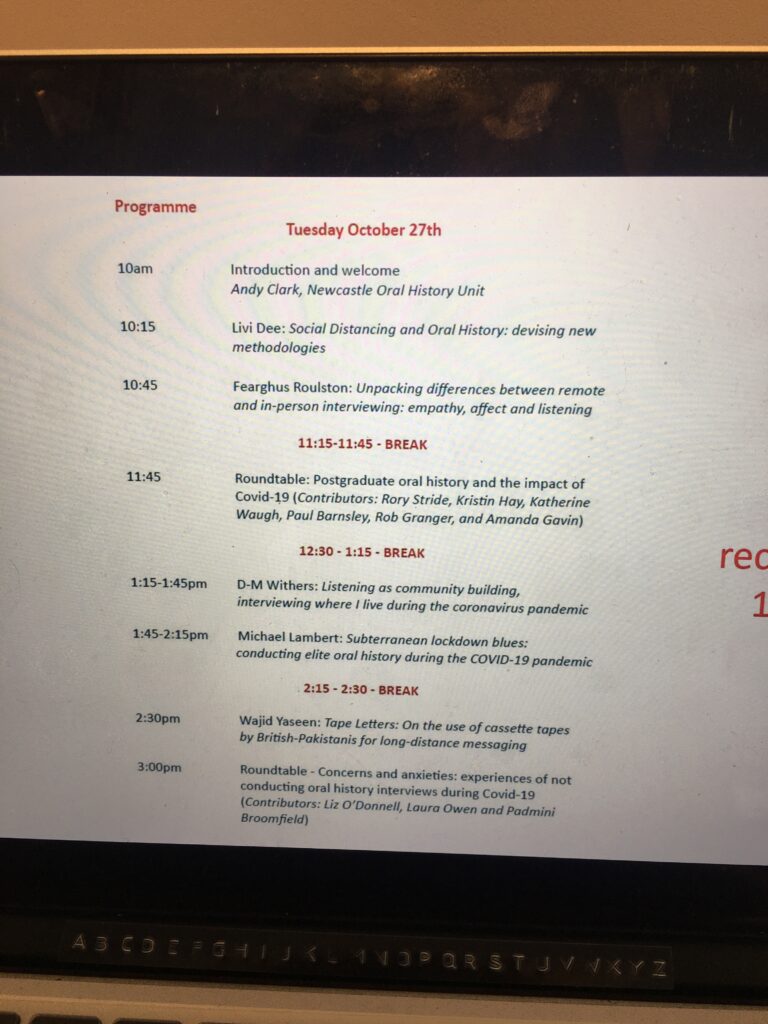There is a problem within the National Trust’s storage system (SharePoint) that is sadly a consequence of democratisation. SharePoint is a complete mess and no one really knows what is going on or who to ask about what is going on. And although this has a lot to do with the design of SharePoint and the lack of transparency surrounding the structure of folders and such, there is another reason there is so much chaos in the folders and that is control. You see before this chaos took hold it was the collection staff who would have been in charge of the archival and collection material, while others might handle files concerning business. Information would have been kept on people’s shelves in their offices, and so to access this information you would have to go through a human. This might in some cases be really annoying because the person who could grant access wasn’t feeling up for it. But then the internet came along with the main intention to make information free and accessible – a more democratic system. Like everyone else the National Trust also decided to remove its strict system of gatekeepers and adopt the attitude of the internet. And this is where an unforeseen consequence arises because while before one person was responsible for a file, now everyone is responsible for all the files, there are no parameters. And because everyone is in charge of looking after everything it is really easy for the individual to simply hope that the next person will sort out that file. Also because looking after files is maintenance and people do not like doing maintenance. Now do not get me wrong I agree that we should have better access to archives and no has the right to deny someone access, but in a world where everyone is responsible, no one is responsible and the National Trust’s SharePoint proves this.
Tag Archives: Ownership
OHD_BLG_0098 Workshop: Oral History and COVID 19
A zoom workshop on 27/10/20.

The oral historians are practiced in interviewing. They have methods and set ups that THEY prefer when they are in the interviewing space. But those being interviewed are often completely new to this world. The interviewing space belongs to both parties equally. Or at least it should. Would then not be more beneficial to build the interviewing space together? Factors like environment and technology can be plan and decided on together, which hopefully will result in an interviewing space that is safe and comfortable for both parties to share openly (with minimal technological hiccups). This idea of building the interview space before the interview works together with another idea that was touched on – follow up chats. The de-assembling of the interview space is just as important as the assembling of the space. It helps develop the since of ownership over personal histories that oral history holds in such high regard.
The majority of the conversation was about how to conduct interviews at distance and the pros and cons of technologies necessary for this venture. One of the things I have concluded from this particular topic is that we talk about technology and people’s literacy in technology in very simplified terms. It’s things like “Older people cannot use Zoom” “I think people are less comfortable with screens” “I think people talk better over the phone” etc. What ‘people’ want differs a lot, however there was one thing people did agree on, that they (the interviewers and oral historians) preferred to do face-to-face interviews because it was more – fun. So, the ‘people’ have a diverse sets of needs but interviewers know exactly what they want, which is not really surprising as one person pointed out because the interviewers have done this many times where as the ‘people’ aka the interviewees probably have never been in a situation like this before.
The building of interview spaces allows the interviewer to explore different methods of interviewing, like walking interviews where the interviewee is able to immerse themselves into the historically relevant environment. Or using alternative recording methods like cassettes simply because the interviewee knows how these work. It does require viewing recording as not something that solely holds content but as an artefact/object with a physical history, that reveals the context of its creation. After all oral history is history created in the present
Oral history as a post-COVID tool
The idea of using oral history for political reasons is something I have talked about a lot. Unsurprisingly it the idea that it could be used as a tool for rebuilding relations after COVID came up several times. I think the key thing oral history can offer a rebuilding world is the principle of listening. People just need to listen. (But as oral history archives prove its REALLY hard to do that sometimes.)